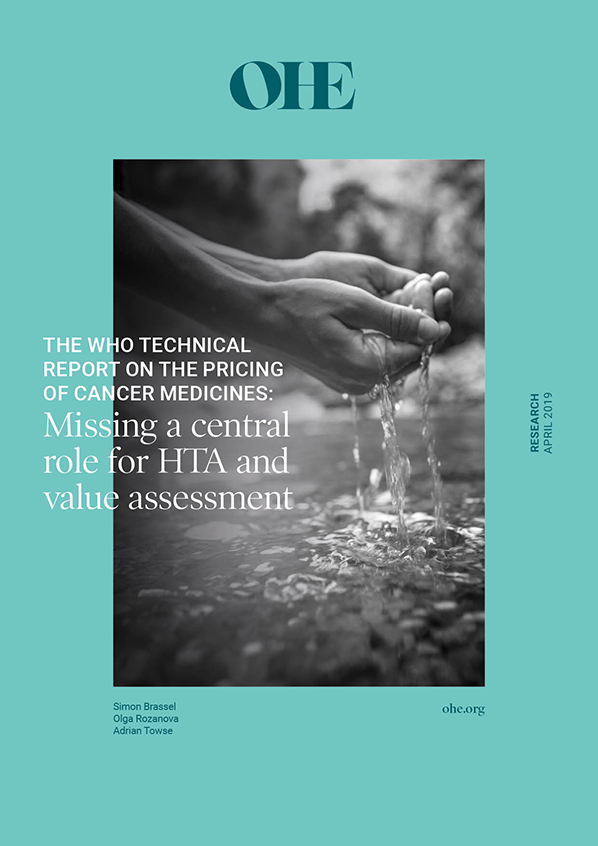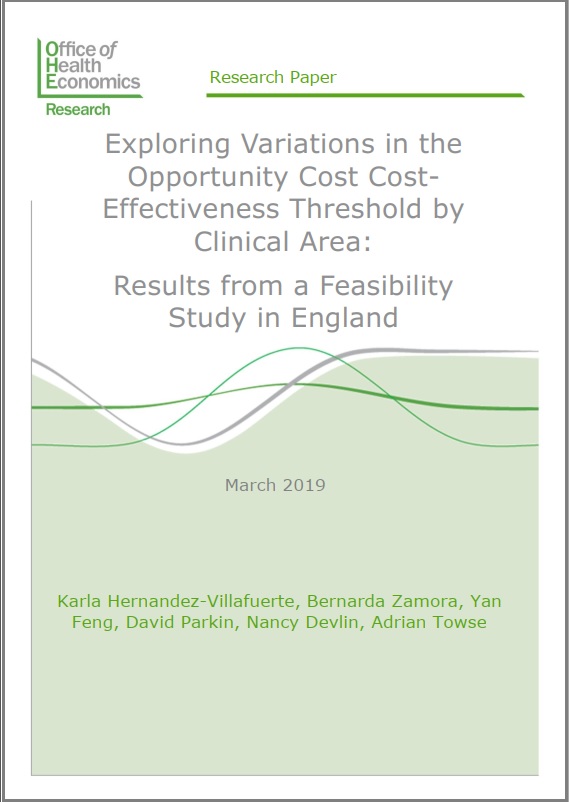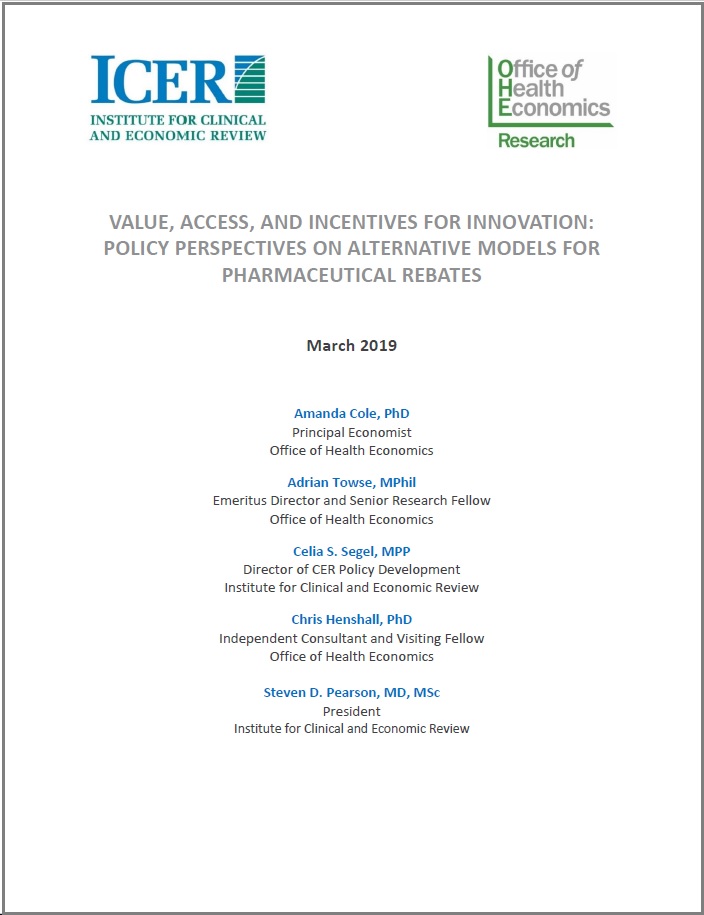Sign up to our newsletter Subscribe
Indication-Based Pricing (IBP) Discussion Paper: Should drug prices differ by indication?

Sign up to our newsletter Subscribe




Using innnovative econometric techniques, this report explores whether and how hospital outcomes and resource use are related for four common procedures.
In a recent report[1], OHE’s Nancy Devlin and colleagues draw an important conclusion with respect to four common surgical procedures in NHS hospitals in England, that “ . . . no general evidence [shows] that hospitals with lower resource use have worse health outcomes . . .” This is a particularly salient finding in this time of economic downturn, when using NHS resources to their full extent is crucial.
The report, Variations in outcome and costs among NHS providers for common surgical procedures: econometric analyses of routinely collected data, is co-authored by Andrew Street, Nils Gutacker, Chris Bojke and Silvio Daidone of the Centre for Health Economics at the University of York and OHE’s Nancy Devlin. It was funded by a UK NIHR Health Services Research Grant.
Since 2009, the NHS in England has been collecting patient-reported outcomes (PRO) data routinely for four elective procedures: unilateral hip replacement, unilateral knee replacement, groin hernia repair and varicose vein surgery. This study uses Hospital Episode Statistics (HES) data combined with reference cost data and PRO data for patients who had these treatments between April 2009 and March 2010.
The report contains two sets of analyses. The first uses econometric techniques to examine variations in the dimensions of patients’ self-reported health status; the ultimate purpose is to facilitate feedback to patients to help them choose among hospitals based on the quality of surgical care. The second part of the project focuses on hospital performance and the relationships between PROs and resource use.
The research produces a number of important insights about the best approaches for using PRO data, the determinants of health outcomes for individual patients, and whether and what variations in outcomes can (and cannot) be explained by differences across hospitals in resource use. In addition to innovative econometric analyses, the report includes useful and specific summaries of the implications of its findings for “practice”—i.e. in analysis of PRO data and in their use to both benefit patients and devise incentives for provide—and “research”—i.e. collecting and analysing data, and setting results in the wider context of hospital and health system performance.
For further information, please contact Professor Nancy Devlin. For an overview of OHE’s extensive activities in patient-reported outcomes measures, click here.
[1] Street, A., Gutacker, N., Bojke, C., Devlin, N. & Daidone, S., 2014. Variations in outcome and costs among NHS providers for common surgical procedures: econometric analyses of routinely collected data. Health Services and Delivery Research, 2(1), pp. 1-112. doi: 10.3310/hsdr02010.
An error has occurred, please try again later.
This website uses cookies so that we can provide you with the best user experience possible. Cookie information is stored in your browser and performs functions such as recognising you when you return to our website and helping our team to understand which sections of the website you find most interesting and useful.
Strictly Necessary Cookie should be enabled at all times so that we can save your preferences for cookie settings.
If you disable this cookie, we will not be able to save your preferences. This means that every time you visit this website you will need to enable or disable cookies again.
This website uses Google Analytics to collect anonymous information such as the number of visitors to the site, and the most popular pages.
Keeping this cookie enabled helps us to improve our website.
Please enable Strictly Necessary Cookies first so that we can save your preferences!